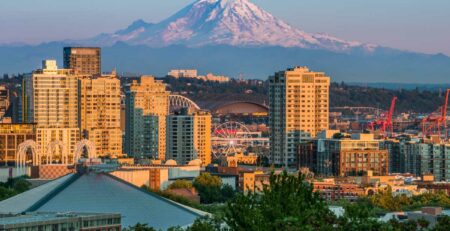How to Engage in Virtual Open Houses
Virtual open houses have emerged as a transformative way to tour properties without setting foot on the premises. Unlike traditional open houses, where you physically visit a property, virtual open houses leverage technology to offer live-streamed or pre-recorded tours you can attend online. This digital shift allows potential buyers to explore multiple properties from the comfort of their homes, eliminating the need for travel and providing a streamlined, interactive experience that offers a wealth of information at your fingertips.
In today’s real estate market, the prevalence of these virtual experiences is growing, and for good reason. They offer unprecedented convenience and flexibility, making it easier for prospective buyers to shop for homes regardless of geographical constraints. This article aims to serve as a comprehensive guide for individuals looking to maximize their virtual open house experience. From the preparation stages to active participation and post-event actions, you’ll learn how to navigate this modern approach to homebuying effectively.
Why Virtual Open Houses Are Gaining Popularity

The rise in popularity of virtual open houses is greatly attributed to their accessibility and convenience. With just a computer or mobile device, you can virtually walk through multiple properties without the hassle of travel. This is especially helpful for people with busy schedules, making the homebuying process more flexible and less stressful.
Reduced Geographical Limitations
Virtual open houses eliminate the geographical barriers that traditionally limit your property search. You can now explore homes in different states or countries without leaving your living room. This opens up an unprecedented range of options for buyers and facilitates long-distance relocation.
Cost-Effectiveness for Buyers and Sellers
Virtual open houses can also be more cost-effective for both buyers and sellers. Buyers save on travel and incidental expenses, while sellers can present their property to a wider audience without the costs of hosting multiple physical open houses. This mutual cost-saving aspect adds another layer of appeal to the virtual format.
Pandemic-Induced Trends
The COVID-19 pandemic played a significant role in the uptick of virtual open houses. With social distancing measures and travel restrictions in place, virtual tours became not just convenient but often the only feasible way to explore properties. As a result, what was once an emerging trend has become an established practice in the real estate industry.
Types of Virtual Open Houses
Live-Streamed Events
Live-streamed events offer real-time tours of a property led by a real estate agent or the homeowner. These events often include a Q&A session where you can ask questions and get immediate answers. This format mimics the experience of a physical open house, providing real-time interaction and the opportunity for immediate feedback.
Pre-Recorded Tours
Pre-recorded tours are videos that offer a walk-through experience of the property but lack the real-time interaction of live-streamed events. These tours are generally available for viewing anytime, offering maximum flexibility. While you can’t ask questions on the spot, you can usually contact the host later for more information.
Interactive 3D Walkthroughs
Interactive 3D walkthroughs take virtual open houses to the next level by allowing you to navigate the property through a clickable interface. Often developed using sophisticated technology like 360-degree photography or laser scanning, these tours allow you to explore the property at your own pace and from various angles, enhancing the depth and realism of the experience.
Preparing for a Virtual Open House
Researching Property Listings
Before attending a virtual open house, it’s wise to do some homework on the property listings you’re interested in. Websites and apps specialized in real estate provide extensive details, including location, amenities, and price. Knowing these specifics in advance will help you engage more effectively during the virtual event.
Setting Up Required Technology
Technology is the backbone of a virtual open house. You’ll need a stable internet connection and a device capable of video streaming, such as a computer, tablet, or smartphone. Additionally, familiarize yourself with the platform or software used for the open house, whether it’s a Zoom meeting, a dedicated app, or a website interface.
Registering or RSVPing for the Event
Most virtual open houses require prior registration or an RSVP to get the access link. This process could include a brief questionnaire about your property search to help the host tailor the event to the attendees’ needs. Make sure to complete this step well in advance of the event date.
Preparing Questions for the Host
Come prepared with a list of questions you’d like answered during the open house. These could range from queries about the neighborhood and local schools to specifics about the property’s condition or the terms of sale. Being well-prepared enhances your engagement and ensures you get the most out of the experience.
How to Actively Participate
Joining the Open House on Time
Punctuality is as valued in a virtual setting as in a physical one. Joining the virtual open house on time shows respect for the host’s schedule and ensures you catch all the information shared right from the start. Most platforms offer an option to set reminders so you don’t miss the event.
Using Chat and Audio Features
Most virtual open houses are interactive and provide chat and audio features for attendees. These tools can be used to ask questions, seek clarifications, or comment during the tour. Remember to mute yourself when not speaking to minimize background noise for everyone else.
Navigating Through Virtual Rooms
You can navigate through different rooms and floors independently in more advanced virtual setups, like interactive 3D walkthroughs. Take advantage of this feature to closely examine areas of particular interest. However, be mindful of any time limits so you can explore all parts of the property.
Asking Insightful Questions
Having prepared questions in advance will serve you well here. Don’t hesitate to ask about anything from utility costs to neighborhood safety, as these questions offer deeper insights into the property. Timely and well-thought-out questions also signal to the host that you’re genuinely interested.
Taking Notes
Finally, keeping notes during the virtual open house can be incredibly helpful for future reference. Jot down your observations, answers to your questions, and any additional queries that come to mind during the tour. These notes will be valuable when comparing multiple properties later on.
Social Etiquette and Best Practices

Good manners translate into the virtual world as well. Show respect by listening attentively when the host or other participants speak and refrain from interrupting. Also, remember that text chats are visible to all attendees, so keep your comments polite and on-topic to maintain a respectful digital environment.
Muting When Not Speaking
Just like in a physical gathering, background noise can be distracting in a virtual setting. Therefore, muting your microphone when you’re not speaking is a common best practice. Most virtual meeting platforms offer easy mute and unmute options, making it convenient to toggle between the two as needed.
Video Presence: To Show or Not to Show?
The question of whether to enable your camera during the virtual open house often depends on the host’s preference and the event’s format. Turning your video on can foster a more interactive and engaging experience, but keeping it off is generally acceptable if you’re uncomfortable or in a setting that’s not conducive to video.
After the Virtual Open House
Compiling Notes and Impressions
Shortly after the virtual open house, take some time to compile your notes and impressions. Review the information you gathered during the event, including any answers to your questions and your general feelings about the property. These notes will be crucial for making informed decisions as you continue your homebuying journey.
Revisiting Property Details Online
Revisit the property listings online to refresh your memory about the details, such as square footage, price, location, and any additional photos or videos provided. This will help you solidify your understanding of the property and its features.
Making a Pros and Cons List
Create a pros and cons list for each property you’ve explored through virtual open houses. Consider aspects like location, layout, condition, and any unique features that stood out. This comparative analysis will help you narrow your choices and identify which properties align best with your needs and preferences.
Contacting the Host for Further Inquiries or Scheduling In-Person Visits
If you have more questions or want to see a property in person, don’t hesitate to contact the host or the listing agent. They can provide additional information, arrange a physical tour, or guide you through the next steps in the homebuying process.
Legal and Safety Precautions

Before making any commitments, it’s crucial to verify the accuracy of property details. Cross-reference the information presented during the virtual open house with official property records, surveys, and documents. Ensure that the property’s features, dimensions, and conditions match what was advertised. This due diligence helps you avoid misunderstandings and potential legal issues down the road.
Caution Against Scams and Misleading Information
The internet can be a breeding ground for scams and misleading information, even in the real estate market. Be wary of deals that seem too good to be true or properties with inconsistent or vague descriptions. Always deal with reputable agents and listing services, and if something raises suspicions, conduct additional research or seek advice from a legal professional or a real estate expert.
Safe Data-Sharing Practices
You may need to share personal information with hosts or agents during your engagement in virtual open houses. It’s essential to practice safe data-sharing by only providing necessary details and using secure channels for communication. Avoid sharing sensitive information, such as financial data, over unsecured platforms or email. Verify the legitimacy of the individuals or organizations requesting your information to prevent identity theft or fraud.
Future of Virtual Open Houses
Integration with Augmented and Virtual Reality
The future of virtual open houses will likely involve a seamless integration with augmented reality (AR) and virtual reality (VR) technologies. AR and VR can provide immersive experiences beyond what is currently possible. Imagine putting on a VR headset and virtually walking through a property, feeling as though you are physically present. AR can enhance the viewing experience by overlaying additional information about a property’s features and history as you explore it virtually. These technologies will make virtual open houses even more engaging and informative.
Predicted Shifts in the Real Estate Market
The continued growth of virtual open houses is expected to lead to significant shifts in the real estate market. As more buyers and sellers become comfortable with this technology, we may see a reduction in the number of traditional physical open houses. This shift could impact the role of real estate agents and how properties are marketed. Additionally, virtual open houses could open up new possibilities for international property transactions, as buyers worldwide can tour properties without the need for extensive travel. However, data security and trust challenges will need to be addressed as the real estate industry embraces these technological advancements.
Unlocking the Virtual Door: Conclusion













LEAVE A COMMENT